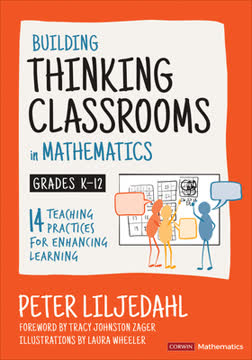가지 주요 요점
1. 스트리트 데이터: 교육 형평성에 대한 혁신적 접근
스트리트 데이터는 우리가 뇌를 훈련하여 식별할 때 눈높이와 낮은 주파수에서 나타나는 질적이고 경험적인 데이터입니다.
교육 데이터를 재정의하다. 스트리트 데이터는 교육 형평성과 변혁에 접근하는 방식에서 패러다임 전환을 나타냅니다. 전통적인 "위성 데이터"인 시험 점수와 출석률과 달리, 스트리트 데이터는 학생, 교사, 커뮤니티의 실제 경험에 초점을 맞춥니다. 이 접근법은 관찰, 대화, 학교 환경에 대한 몰입을 통해 수집된 질적 정보를 중요시합니다.
전체적인 이해. 스트리트 데이터는 다음을 고려하여 학생 학습과 학교 문화를 더 포괄적으로 이해할 수 있게 합니다:
- 학생의 목소리와 관점
- 교실 내 역학과 상호작용
- 문화적 맥락과 커뮤니티 지식
- 학습에 영향을 미치는 비학문적 요인
스트리트 데이터를 수용함으로써, 교육자들은 형평성 문제를 더 세밀하게 이해하고 더 효과적이고 문화적으로 반응하는 해결책을 찾을 수 있습니다.
2. 대시보드 뒤집기: 위성에서 스트리트 레벨 인사이트로
학생의 자산을 발견하고 근본 원인을 이해하며 변혁적인 해결책을 찾기 위해 지도와 스트리트 레벨 데이터를 활용해야 합니다.
숫자를 넘어서다. 전통적인 교육 지표는 학생 경험과 학습의 전체 그림을 포착하지 못하는 경우가 많습니다. 스트리트 데이터 접근법은 교육자들이 대시보드를 "뒤집어" 정량적이고 고수준의 데이터보다 질적이고 지상 수준의 정보를 우선시하도록 권장합니다.
세 가지 수준의 데이터:
- 위성 데이터: 광범위한 정량적 측정 (시험 점수, 출석률)
- 지도 데이터: 중간 수준의 경향 (설문 조사, 공통 평가)
- 스트리트 데이터: 세밀하고 경험적인 정보 (관찰, 대화, 유물)
스트리트 데이터에 집중함으로써, 교육자들은:
- 숨겨진 강점과 도전을 식별
- 정량적 데이터 뒤의 맥락 이해
- 더 목표 지향적이고 효과적인 개입 개발
- 소외된 학생들에 대한 결핍 서사를 도전
3. 경청의 힘: 소외된 목소리를 중심에 두다
데이터 대화를 시작할 때 소외된 학생과 가족의 희망, 꿈, 이야기가 살아있는 조용한 곳을 출발점으로 삼음으로써, 우리는 피라미드를 뒤집고 권력의 역학을 변화시키며 아이들을 교육 담론의 중심에 둡니다.
급진적 포용. 스트리트 데이터 접근법은 교육 의사 결정에서 종종 간과되는 사람들의 목소리를 깊이 듣는 것의 중요성을 강조합니다. 여기에는 유색인종 학생, 영어 학습자, 장애 학생, 소외된 커뮤니티의 가족이 포함됩니다.
소외된 목소리를 중심에 두기 위한 전략:
- 학생과 가족과의 공감 인터뷰
- 학생 주도 회의 및 피드백 세션
- 커뮤니티 산책 및 가정 방문
- 학생이 참여하는 행동 연구
이러한 목소리를 우선시함으로써, 교육자들은:
- 형평성에 대한 숨겨진 장벽 발견
- 커뮤니티 문화적 자산 활용
- 신뢰와 강한 관계 구축
- 더 문화적으로 반응하는 실천 개발
4. 근본 원인 발견: 빠른 해결책을 넘어서다
빠른 해결책보다 근본 원인을 찾으십시오.
더 깊이 파고들다. 스트리트 데이터 접근법은 표면적인 해결책을 넘어서 불평등에 기여하는 근본적인 요인을 해결하도록 교육자들을 격려합니다. 이는 호기심을 유지하고 가정을 도전하는 의지를 필요로 합니다.
근본 원인을 발견하기 위한 도구:
- 빙산 프로토콜: 패턴, 구조, 정신 모델 검토
- 양파 껍질 벗기기: 문제 분석을 위한 구조적 접근
- 형평성 중심의 교실 스캔
- 학생 그림자 경험
근본 원인에 집중함으로써, 교육자들은:
- 더 지속 가능하고 영향력 있는 해결책 개발
- 증상보다는 시스템 문제 해결
- 암묵적 편견과 결핍 사고 도전
- 지속적인 문화적 및 제도적 변화 창출
5. 교육 재구상: 학생의 주체성과 목소리 육성
주체성은 진공 상태에서 나타나지 않으며, 교사가 지식을 제공하는 전통적인 교실에서도 번성하지 않습니다. 주체성은 권력이 분배되고, 지식이 민주화되며, 다양한 관점이 환영받고, 아이들이 지적 및 정서적으로 양육되는 학습 공간에서 나타납니다.
목소리의 교육학. 스트리트 데이터 접근법은 교육과 학습을 보는 방식에서 근본적인 변화를 옹호합니다. 순응 기반 모델 대신, 학생의 주체성, 목소리, 비판적 의식을 중심으로 하는 교육학을 촉진합니다.
목소리의 교육학을 위한 여섯 가지 간단한 규칙:
- 덜 말하고, 더 웃기
- 질문을 답변보다 우선시
- 반성과 수정의 의식화
- 학습을 공개적으로 만들기
- 원을 이루기
- 성적보다 피드백
이 접근법을 수용함으로써, 교육자들은:
- 학생 참여와 동기 부여 증가
- 비판적 사고와 문제 해결 능력 개발
- 소속감과 권한 부여 촉진
- 학생들을 적극적인 시민과 평생 학습자로 준비
6. 일관성 구축: 비전, 실천, 평가의 정렬
적을수록 더 많다; 집중이 모든 것이다.
시스템적 정렬. 스트리트 데이터와 목소리의 교육학을 효과적으로 구현하려면, 학교와 학군은 비전, 교육 실천, 평가 방법 간의 일관성을 만들어야 합니다. 이는 명확한 초점과 더 이상 학생들에게 도움이 되지 않는 전통적인 접근 방식을 포기할 의지를 필요로 합니다.
일관성의 주요 요소:
- 공유된 졸업생 프로필 개발
- 성과 기반 평가 구현
- 형평성 목표와 일치하는 전문 학습
- 교육과 학습에 대한 공통 언어 창출
일관성을 구축함으로써 얻는 이점:
- 교육자와 학생을 위한 명확한 방향
- 더 의미 있고 진정성 있는 평가
- 가치와 실천 간의 증가된 정렬
- 학생 성과와 형평성에 대한 더 큰 영향
7. 성인 문화 변혁: 취약성과 지속적인 학습 수용
마법은 우리가 제공하는 어떤 프로토콜이나 계획에 있는 것이 아니라, 그 프로토콜에 참여하는 사람들의 사고방식에 있습니다.
성인 사고방식 전환. 스트리트 데이터와 형평성 중심의 실천을 구현하려면, 교육자들이 자신의 학습과 성장에 접근하는 방식에서 변혁이 필요합니다. 이는 취약성을 수용하고, 가정을 도전하며, 지속적인 개선에 헌신하는 것을 포함합니다.
성인 문화 변혁을 위한 전략:
- 공개 학습 실천
- 형평성 중심의 교육 라운드
- 협력적 데이터 분석 프로토콜
- 반영적 경청 및 코칭 대화
성인 학습 문화를 육성함으로써, 학교는:
- 형평성 작업에 대한 장벽 제거
- 집단 효능감과 협력 증가
- 학생들에게 평생 학습 모델 제공
- 더 반응적이고 적응력 있는 교육 시스템 창출
8. 따뜻한 요구자: 형평성과 우수성을 위한 교육자 부르기
모든 순간이 형평성의 순간입니다.
돌봄과 높은 기대의 균형. "따뜻한 요구자"의 개념은 스트리트 데이터와 형평성 중심의 실천을 효과적으로 구현하는 데 필요한 접근 방식을 구현합니다. 이는 학생과 동료에 대한 높은 기대와 진정한 돌봄과 지원을 결합합니다.
따뜻한 요구자의 특성:
- 불가능을 믿음
- 신뢰와 관계 구축
- 자기 규율 가르침
- 실패를 학습 기회로 수용
따뜻한 요구자 전략:
- 높은 기준을 유지하여 강점 보여주기
- 소외된 목소리의 경험을 듣고 확인
- 성장에 대한 도전과 선택 제공
- 변화를 구현하기 위한 용기 있는 행동
따뜻한 요구자 자세를 채택함으로써, 교육자들은:
- 형평성 문제를 동정심과 단호함으로 다루기
- 학생과 가족과의 신뢰 관계 구축
- 지속적인 개선 문화 창출
- 반인종주의적이고 문화적으로 반응하는 실천 모델 제공
마지막 업데이트 날짜:
FAQ
What's Street Data about?
- Focus on Equity: Street Data by Shane Safir and Jamila Dugan introduces a model for equity, pedagogy, and school transformation, emphasizing the importance of listening to marginalized voices in education.
- Shift from Big Data: It advocates moving away from traditional big data metrics to "street data," which includes qualitative insights from students, families, and educators.
- Holistic Approach: The book promotes a comprehensive understanding of educational challenges, encouraging educators to engage deeply with students' lived experiences to drive meaningful change.
Why should I read Street Data?
- Urgent Call for Change: The authors provide a compelling argument for reimagining educational practices to address systemic inequities.
- Actionable Framework: It offers practical strategies and frameworks that educators can implement immediately to foster equity and inclusion in their classrooms.
- Empowerment of Marginalized Voices: The book emphasizes the importance of centering the voices of marginalized students, making it essential reading for those committed to social justice in education.
What are the key takeaways of Street Data?
- Street Data Concept: Introduces "street data," qualitative, experiential data from students and families, as opposed to traditional quantitative metrics.
- Equity Transformation Cycle: Outlines a cycle that includes listening, uncovering root causes, reimagining solutions, and moving forward with courage.
- Pedagogy of Voice: Advocates for a pedagogy prioritizing student agency and engagement over compliance and rote learning.
How does Street Data define "street data"?
- Qualitative Insights: Street data is qualitative and experiential, emerging from direct interactions with students, families, and educators.
- Asset-Based Approach: Focuses on identifying strengths and cultural wealth within communities rather than merely highlighting deficits.
- Humanizing Data: Argues that street data humanizes the educational process, allowing for a deeper understanding of student experiences and needs.
What is the equity transformation cycle in Street Data?
- Four Phases: Consists of four phases: Listen, Uncover, Reimagine, and Move, designed to engage stakeholders collaboratively.
- Nonlinear Process: Allows for flexibility and adaptation as new insights emerge from street data.
- Focus on Community: Emphasizes community involvement and centering the experiences of marginalized groups throughout the transformation process.
What specific methods does Street Data recommend for gathering data?
- Empathy Interviews: Conducting one-on-one conversations to gain insights into students' experiences and perspectives.
- Co-generative Dialogues: Informal conversations between teachers and students aimed at providing feedback and co-creating solutions.
- Learning Walks: Observing classroom dynamics through an equity lens to gather data on student engagement and participation.
What is the significance of a "pedagogy of voice" in Street Data?
- Empowerment of Students: Empowers students by valuing their perspectives and experiences in the learning process.
- Shift from Compliance: Contrasts with traditional compliance-driven pedagogies, promoting active engagement and critical thinking.
- Fostering Agency: Encourages students to take ownership of their learning, fostering a sense of agency and belonging in the classroom.
How does Street Data suggest addressing systemic racism in education?
- Recognize Implicit Bias: Emphasizes the need for educators to recognize and confront their own implicit biases.
- Engage in Continuous Learning: Advocates for ongoing professional development focused on racial literacy and historical fluency.
- Implement Structural Changes: Calls for systemic changes in policies and practices that perpetuate inequity, including re-evaluating disciplinary practices and curriculum content.
What are some equity traps and tropes discussed in Street Data?
- Doing Equity: Treating equity as a series of compliance tasks rather than a holistic change process linked to culture and identity.
- Siloing Equity: Isolating equity work in separate teams or policies, disconnecting it from overall school improvement efforts.
- Tokenizing Equity: Asking leaders of color to represent equity without adequate support or engaging the entire staff in the work.
What does Street Data say about the importance of student agency?
- Empowerment Through Agency: Emphasizes that student agency is crucial for fostering a sense of belonging and mastery in learning.
- Components of Agency: Outlines four components: identity, belonging, mastery, and efficacy, each vital for navigating educational experiences.
- Measuring Agency: Advocates for measuring student agency through qualitative methods rather than traditional assessments.
What are some best practices for implementing a pedagogy of voice?
- Create Safe Spaces: Stresses the importance of creating safe and inclusive classroom environments for student expression.
- Encourage Reflection: Promotes critical thinking by encouraging students to reflect on their learning experiences and share insights.
- Utilize Collaborative Learning: Recommends using collaborative learning strategies to foster a sense of community and enhance engagement.
What are the best quotes from Street Data and what do they mean?
- “Equity work is first and foremost pedagogical.”: Emphasizes that the foundation of equity in education lies in how teaching and learning are structured and delivered.
- “The heartbeat of antiracism is confession.”: Highlights the importance of acknowledging and addressing personal and systemic biases in the pursuit of equity.
- “Every moment is an equity moment.”: Underscores the idea that educators have the opportunity to address equity in every interaction and decision they make.
리뷰
스트리트 데이터는 교육에서 형평성과 대안적 데이터 수집 방법에 중점을 둔 점에서 많은 찬사를 받고 있다. 독자들은 학교 변화를 위한 실질적인 전략과 자원이 제공된 점을 높이 평가한다. 비평가들은 이 책이 새로움이 부족하고 지나치게 전문 용어에 의존한다고 주장한다. 일부 리뷰어들은 표준화된 시험을 거부하는 점을 논란의 여지가 있다고 본다. 전반적으로, 이 책은 불평등 문제를 해결하려는 교육자들에게 사려 깊은 책으로 여겨지지만, 그 효과성과 적용 가능성에 대한 의견은 다양하다.
Similar Books










